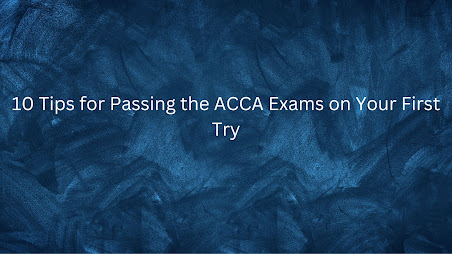ACCA Exemptions Guide
There are two types of exemption: those based on your prior qualifications, and those based on your work experience. If you believe you may be eligible for an exemption, you will need to submit an application form, along with supporting documentation, to ACCA. Once your application has been received, it will be assessed by a team of qualified staff who will make a decision on whether or not you are eligible for an exemption.
If you are successful in obtaining an exemption, this will be reflected in the way your membership is registered with ACCA. For example, if you are exempt from the Fundamentals level exams, your membership will be registered as 'F1-F9'. This is important to bear in mind when applying for jobs or tenders, as some employers may specify that they only want to consider applications from candidates who hold full ACCA membership (i.e. F1-F9).
It's not always easy to find your way into the world of accountancy, but if you're in the process of training for a career in finance or accounting and have relevant qualifications and experience under your belt - then you could be eligible for an ACCA exemption.
What are ACCA Exemptions?
ACCA offer exemptions for those with relevant qualifications and experience. This means that if you have already completed a similar qualification, or have gained equivalent work experience, you may not need to complete certain papers.
For example, someone with an accounting degree from a recognised university may be exempt from taking the Fundamentals level papers. Or, if you have three years' worth of relevant work experience in finance or accounting, you may be able to exemption from some of the Professional level papers.
To find out which exemptions you may be eligible for, visit the ACCA website and use their Exemption Calculator tool.
Do you have to pay for exemption in ACCA?
There is no set fee for exemption from the Association of Certified Chartered Accountants (ACCA), as each case is unique. However, ACCA members are typically required to pay an annual membership fee, which may be reduced if they are exempt from certain exams. The cost of taking ACCA exams also varies depending on the country in which you take them. For example, exam fees in the UK are significantly higher than in other countries.
Types of exemptions
There are a number of different types of exemptions that ACCA offer for those with relevant qualifications and experience. The main types of exemptions are:
- Qualification Exemptions: These are based on your prior academic qualifications and can be claimed for certain papers if you have studied a relevant degree or professional qualification
- Experience Exemptions: If you have significant relevant work experience, you may be eligible for certain papers to be exempted.
- Combined Qualifications and Experience Exemptions: You may be able to claim both qualification and experience exemptions if you have a combination of the two.
- Partial Exemptions: If you have partially completed an ACCA-recognised qualification, you may be eligible for partial exemption from certain papers.
How to apply for an exemption
If you have relevant qualifications and experience, you may be eligible for an exemption from ACCA examinations.
To apply for an exemption, you will need to submit a completed exemption details, along with the required supporting documentation.
Exemption applications can take up to eight weeks to process, so please ensure you allow sufficient time when applying.
Once your exemption application has been approved, you will be issued with an Exemption Certificate which will entitle you to register as an ACCA student.
Conclusion
The Association of Chartered Certified Accountants (ACCA) offers exemptions for those with relevant qualifications and experience. This means that if you have a degree in accounting or a related field, or if you have worked in the accounting field for a certain period of time, you may be able to waive some of the requirements for taking the ACCA exams. This can save you time and money in your pursuit of becoming a certified accountant. If you think you might be eligible for an exemption, be sure to check out the ACCA website to learn more.


Comments
Post a Comment